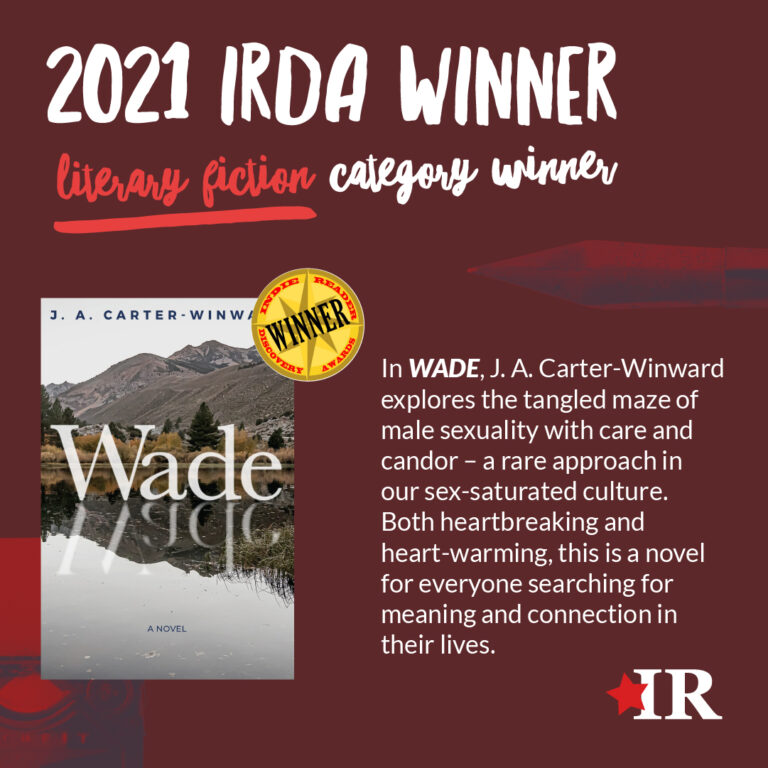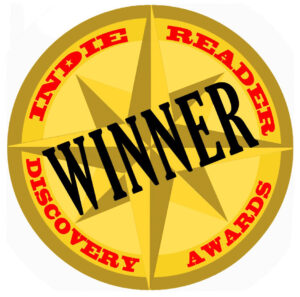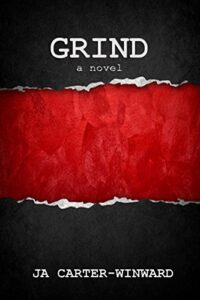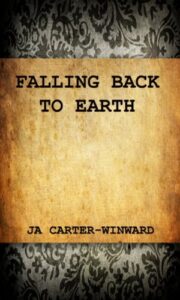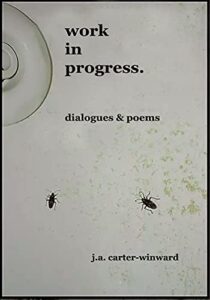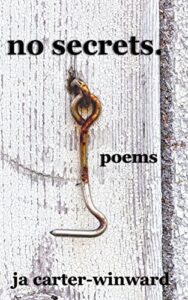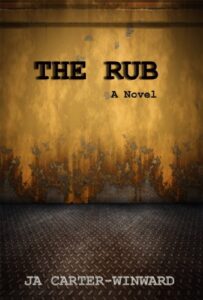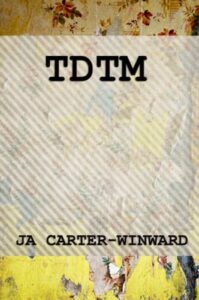Wade was the winner in the Literary Fiction category of the 2021 IndieReader Discovery Awards, where undiscovered talent meets people with the power to make a difference.
Following find an interview with author J.A. Carter-Winward.
What is the name of the book and when was it published?
Wade was released/published in March of 2021.
What’s the book’s first line?
“The doctor had suggested it was all in his head because of his wife’s death.”
What’s the book about? Give us the “pitch”.
“Except for being the only man in town who had never set foot in either of its brothels, Wade Kendall couldn’t be more ordinary. A retired life-insurance salesman, father of two grown sons, and former full-time caregiver to his wife, who died of cancer just 8 months earlier, Wade now finds himself alone, unable to tread water. In fact, it’s sink or swim, and he’s got no idea which way to shore. As he attempts to connect to his new life and reconnect with his adult sons, Wade finds himself drawn to a most unlikely source of hope—the pink-neon lights of the legendary Lil’ Mamacitas. But what Wade finds within the dim, hazy interior of the brothel isn’t at all what he could have imagined, and for Wade and all who join him, nothing will ever be the same.”
What inspired you to write the book? A particular person? An event?
I was in a coffeeshop/local bookstore in town with my husband when a guy/reader came over to talk to me. He’d read my novel, GRIND, and my poetry books, and he told me he wished someone would write a novel about a brothel. Not a salacious novel, nothing political about sex work, etc., but about why men go, why the women who work there by choice make that choice, and so on. There aren’t a lot of books written by women that explore the male sexual psyche in an even-handed, accurate way, and he said I wrote “like a man” (I think he meant it as a compliment, so that’s how I took it.) The idea of a story that moved at the same pace as driving through that endless desert in Utah/ Nevada—it’s like you’re hardly moving, but then, suddenly, you’re on top of a small town or city—and you’re just inside a whole new world, moving at that pace, immersed in the whole of it. It’s fantastic. So, I wanted Wade to be a thoughtful and very human story and it seemed like the perfect “next step” after the faster pace of GRIND.
What’s the main reason someone should really read this book?
For the same reasons you’d read any book. To step out of your comfort zone and push yourself to grow as a human being. At the end of the day, isn’t that what we’re doing here? Becoming the best versions of ourselves by opening our minds to other worlds. From experience, literature is, has always been, the best way to do that. I’m not sure if there are enough lifetimes to fully immerse yourself in another world, culture, society, time, another human mind, even. But to cultivate empathy and compassion and gratitude, literature remains a vital tool for us. Good literature, good stories, have some pretty solid components that stand the test of time. Universality and verisimilitude. Finding what connects us, then seeing what makes us unique, and then acknowledging both. Falling head-over-heels in love with both.
What’s the most distinctive thing about the main character? Who-real or fictional-would you say the character reminds you of?
Wade’s voice (in my head) and physical appearance is that of a good male friend of mine who lives in another state now. I’m not sure he knows I patterned my character after him, but that’s okay. The most distinctive thing about Wade is how utterly conflicted he is, all the time. He’s not unlike most people I know. He’s completely sure of something one moment, then the next moment, his humility and uncertainty kicks in and he questions everything. I think that’s why Wade is so endearing. Painfully humble at times but endearing. I also feel his voice speaks to men in particular, since men aren’t in a place to really talk about or express their sexuality in a socially acceptable way right now. That has nothing to do with feminism or whatever the socio-political platform is at the moment. This book is about a human being first, who happens to be a man, who happens to be incredibly lonely. Who can’t understand or relate to that?
If they made your book into a movie, who would you like to see play the main character(s)?
What a cool question. Um, they’d have to be kind of dumpy and a bit awkward… or a really good actor! And short. Hmm. So an amalgam of Paul Giamatti and Harrison Ford?
When did you first decide to become an author?
After I wrote my first book. It was too labor-intensive, too all-consuming to say, “I’m doing this” without saying “…so I did this.”
Is this the first book you’ve written?
No. I’ve written a few others.
What do you do for work when you’re not writing?
I don’t understand the question… kidding. Writing is my day job. I’m also a poet and visual artist, which, interestingly, was how I made rent as a single mom with 3 kids before I met my current husband. I painted commissions for wealthy men who liked my work for some reason. I suspect the copious amounts of female nudity in my paintings had a certain appeal for some of them. Or all of them. Something that I don’t make money from at all, but it’s a lot of work—I founded a non-profit organization with my husband called The Black Box Warning Initiative to warn people of the risks of certain FDA-approved medications currently on the market today. These are risks that patients are often not warned about, risks that can be permanently disabling or fatal. I’ve produced and written several small films for the BBWI, writings, poetry, and prose, and so when I’m not editing my next novel or writing in the current project, I’m working on the BBWI as well as my own recovery and wellness after being debilitated by some of those medications.
How much time do you generally spend on your writing?
Until I can’t sit upright anymore. Every day. I can’t imagine a day without writing. It’s never a chore or a “have-to.” It’s why I get up in the morning. It’s how I’ve gotten through everything.
What’s the best and the hardest part of being an indie?
Imposter syndrome. Worrying that it’s not going to matter if no one knows you exist. Wishing/wondering what would have happened if I’d taken the opportunity I was offered, once upon a time, if I just tweaked the literary fiction I’d written and made it into a more romantic “beach read.” In the end, I made the right call and I have no regrets.
What’s a great piece of advice that you can share with fellow indie authors?
Know why you’re a writer and make sure it matches what you write. Even if you don’t want to admit why you’re a writer to anyone else, admit it to you. That integrity will save you a lot of heartache.
Would you go traditional if a publisher came calling? If so, why?
I don’t know. It depends on why they’re calling. It comes down to the question, #7, above. I know why I write. If whatever they’re offering fits in with why I write and helps me accomplish that, then sure.
Is there something in particular that motivates you (fame? fortune?)
I hope to one day have my own reality TV show called A Day in the Life of Writer, J.A. Carter-Winward. They’d film me waking up, changing from sweatpants and a tank top into jeans and a tank top (different tanks, obviously). If it’s chilly, I’d don one of my many second-hand flannel shirts. They’d film me as I loop or scrunch my hair up and out of the way so I can shuffle to my office where I drink my morning coffee and write. Write, revise, write, revise, the tension building as I manage different color Post-It Notes until I’m forced to rest with my supplementary oxygen unit (this is where it gets intense and quite sexy). While in my weirdly intelligent bed—which gives me “points” and a “score” for doing absolutely nothing, much like a “certificate of participation” for not dying in it—I try to read or stare into space and be mindful of things. After the first perfunctory rest, I’d probably tinker on the piano, think about reorganizing my art studio so I can get back to work on this huge art installation I’m in the middle of. After that, I’d wander up and down the hallway, complain to my husband about something, then do some bare-minimum parenting (all adults, they’re fine). After more writing, revising, editing, writing, I’d probably be forced by my cat to nap with him (take a cat nap? So many different angles/possibilities, here) sans oxygen. The climax—after all that head-spinning excitement—I might play a game of ping-pong with my husband before a healthy dairy/sugar/gluten-free meal in front of the television while we enjoy a Brit Box detective series (Shetland! Wallander!) We go to bed at 8:30 pm (even on the weekends) so we’d be fresh and ready to do it allll over again the next day. I know, right!?
Okay, what really motivates me is telling stories of the human experience in new and interesting ways, ultimately with the hopes of those stories being somewhat entertaining. That’s the truth.
Which writer, living or dead, do you most admire?
Whew. That’s a big one. Philip Roth—a huge, huge influence. David Foster Wallace is probably on the tippy-top shelf of authors I love to read and who I deeply admire. Robert Olen Butler, Chuck Klosterman, Jennifer Egan, John Steinbeck—a huge, huge Steinbeck fan. His stories are so incredibly human. I love poets Billy Collins and Charles Bukowski—the latter because of his total irreverence for the establishment, the former for the same thing within the establishment. I love Ernest Hemingway’s run-on prose and the humor of Joshua Ferris, Douglas Coupland, Howard Jacobson. I love J.G Ballard…this is getting on a bit but, yeah. Really, any good storyteller who leaves the personal agenda at the door and brings me into their worlds.
Which book do you wish you could have written?
Not sure how to answer this one. If I’d written a book that’s already been written, it would be a different book. Maybe even one I wished I hadn’t written… #LiteraryLooper #AuthorInception
